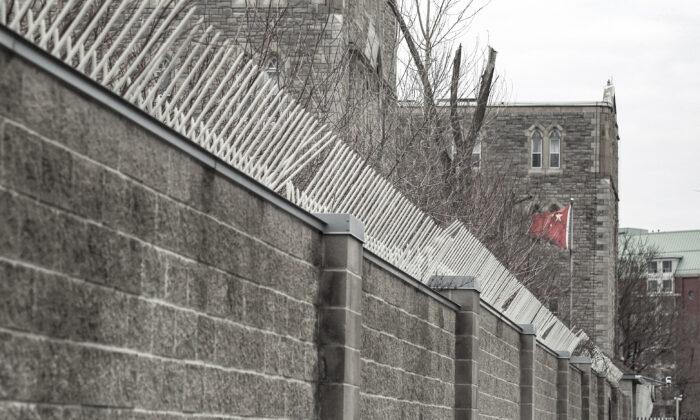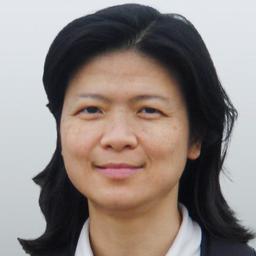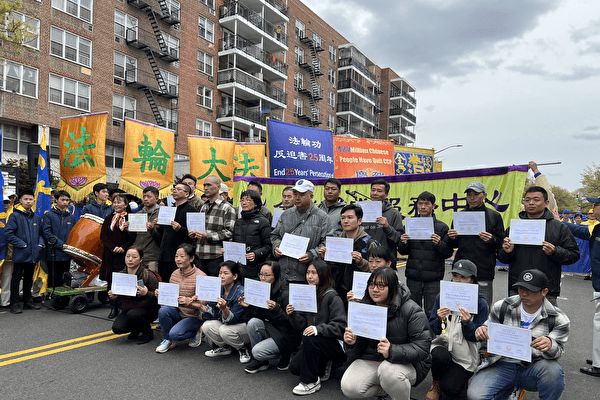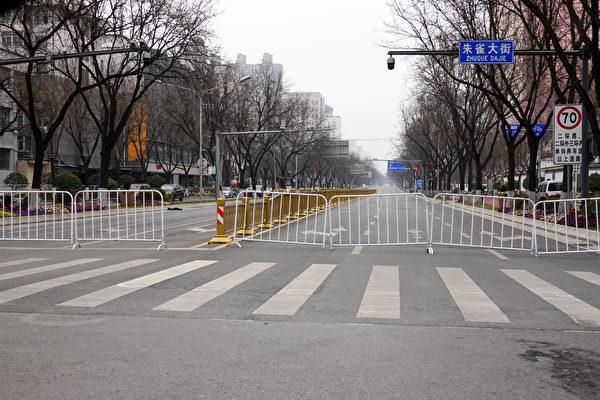Beijing’s systematic theft of Western technology has resulted in a growing skepticism toward Chinese nationals in the international community. They are increasingly seen as potential allies or agents of the Chinese Communist Party (CCP). With Western vigilance against CCP influence overseas on the rise, the Chinese community finds itself increasingly isolated, amplifying distrust from Western institutions.
Growing Skepticism
Over a decade ago, numerous Taiwanese students were drawn to studying in China as it facilitated easier admission to prestigious universities in the United States, Shen Jung-Chin, associate professor at Toronto’s York University, told the Chinese edition of The Epoch Times.He explained that back then, the quota for Chinese students was much higher than that for Taiwanese students. “However, the dynamics have since shifted,” said Mr. Shen.
Since 2018, Chinese students seeking admission to study in the United States have encountered increased rates of visa rejections, particularly in sensitive, high-tech fields, posing greater challenges compared to the past, according to Mr. Shen. “The growing suspicion surrounding Chinese students and scholars working for the CCP has raised concerns about potential harm to American interests,” he said.
Between June and September 2020, more than 1,000 Chinese nationals had their visas revoked by the United States, under a program aimed at graduate students and researchers believed to have ties to the Chinese military, according to a report by Reuters.
Zhong Shan, a senior engineer for a communications network in Silicon Valley, expressed to The Epoch Times that he experienced a similar situation during his job hunt.
“Despite securing an offer from a prominent company and successfully passing the initial interview, I found myself unable to commence work due to my Chinese background, which prohibited me from gaining entry into the workplace,” he explained.
He sensed that there is covert discrimination whereby Chinese are allowed employment and engagement in non-essential roles. Nonetheless, Chinese nationals are barred from involvement in critical positions due to concerns over their loyalty.
“This is undoubtedly disadvantageous for Chinese. The CCP regime is the cause for the Western world to opt for complete rejection. If the CCP were to cease existing, this issue would undoubtedly see considerable improvement,” he said.
Mr. Shen also observed that Chinese employees in Western companies increasingly hit a glass ceiling: Once they reach a certain level, they struggle to advance further.
Aiming to Steal
In recent decades, the CCP has systematically engaged in the theft of Western technology through three primary methods: first, they acquire overseas companies or form joint ventures with them to exchange market access for technology; second, they conduct illegal cyber-hacking or engage in economic espionage; and third—the most prevalent method—they exploit “gray areas” to obtain technology through channels such as educational institutions, research centers, scholars, and commercial transactions, all with significant support from the Chinese government.According to a 2020 report by the Chinese Talent Program Tracker at Georgetown’s Center for Security and Emerging Technology (CSET), China operates approximately 40 national-level talent recruitment programs aimed at attracting overseas talent. When including regional-level programs, the total number was estimated to be close to 300.
The most prominent program is the Thousand Talents Program, initiated in 2008, which targets researchers and scholars in American universities. The program is overseen by the CCP’s Overseas High-level Talent Recruitment Work Group.
A report by the Australian Strategic Policy Institute in August 2020 uncovered 600 CCP overseas talent-recruitment stations.
“I’ve seen too much of this, I don’t want to give examples, it would offend people. Some of the publicly reported cases are already very frightening,” said Mr. Zhong, regarding the Silicon Valley ecosystem.
According to Mr. Zhong, Silicon Valley is a primary target. CCP agents specifically establish headhunting firms and venture capital focused on Chinese engineers in Silicon Valley. This allows for both the theft and implementation of technology in China.
“You can’t imagine how sophisticated it is. In China, there are alumni associations of certain U.S. states’ universities, such as the California Berkeley Chinese Alumni Association, but they are not affiliated with the official alumni management system of UC Berkeley. Similarly, the Tsinghua Cross-Strait Alumni Association is not affiliated with Tsinghua University in Taiwan. In fact, Tsinghua University in Taiwan has issued a statement clarifying that it has no connection with any cross-strait alumni associations with the CCP’s name,” he said.
Mr. Zhong mentioned that the CCP has also established technology headhunting firms related to the Chinese community. There are numerous Chinese-language headhunting accounts on LinkedIn, specifically targeting individuals of Chinese background.
“If you don’t want to deal with the CCP, then don’t leave any text in Simplified Chinese on LinkedIn,” he said. Simplified Chinese is typically used in China, whereas Traditional Chinese is used in Taiwan and many overseas communities. Once targeted, the CCP will repeatedly analyze any potential to exploit its target, and “invite you back to China to investigate various opportunities,” he warned.
He cited the Chinese Association for Science and Technology, which has about 20,000 members, as an example. “The CCP invests money to conduct overseas award programs through this association. Once awarded, doors to various opportunities in China for the returnees will open, which effectively extends the protocol of technology theft overseas,” he said.
New technologies introduced to China often require funding through technology venture capital to take off and gain support in their initial stages. A plethora of investors with Chinese faces congregate in Silicon Valley. Mr. Zhong called those investments “red capital”—money from China—much of which originates from princelings within the CCP. After red capital is laundered overseas, it circulates back as capital for technology startups, he said.
A significant proportion of these technologies have already obtained certification overseas, and arrangements have been made inside China. “If you return to China to start a business, everything—money, office space, environment, various supporting policies—is already clearly laid out. Moreover, the operations at each stage are clearly laid out,” he said, adding that this strategy explains how China produces so many technical innovations.
He mentioned that the theft has been going on for over 30 years, non-stop. “There’s hardly any authentic AI technology in China; it’s all stolen. The Chinese scientists take up to 40 percent of the talents in this field,” he said.
For a long time, Western governments have hoped that overseas Chinese trained by the West could become a force to drive change in China. Instead, the comprehensive control exerted by the CCP obstructs their opportunities for development in the West.
Regarding this phenomenon, one netizen commented that as long as they have relatives in China, overseas Chinese become potential spies who could leak information at any time. With a soft spot to exploit, a dose of nationalism, and materialistic temptations, few individuals are invulnerable to CCP coercion.
Keep a Low Profile
“It’s better to keep a low profile. You can chat, but avoid deep involvement, and refrain from sharing too many personal thoughts. Once you’re targeted, there will inevitably be numerous intricate relationships involving united front work and overseas Chinese affairs that could entice or manipulate you,” he advised.Many high-caliber Chinese want to live overseas and enjoy a better life, he said. However, to start businesses and achieve 50-fold growth in China they must tie their destiny to the CCP, and that is a path of no return, he said.
“A person’s stance determines their future opportunities for development,” he said.
As an example, Mr. Zhong mentioned physicist Sir Charles Kao Kuen, a Nobel laureate, and a highly respected figure—considered a founding father in the field of fiber optics. “Dr. Kao Kuen never negotiated with the CCP,” he said.
Mr. Shen agreed that any kind of involvement becomes a slippery slope. He said, “I know some international students initially didn’t want to participate in any political activities organized by the Chinese embassy, but they ended up going because friends invited them. If you’re on the list, they'll invite you to all the activities.”
He also knew a student who involuntarily got involved because the CCP would impose financial scrutiny or other repercussions against his parents’ businesses back home.
Mr. Shen said he believes the most effective way to root out the problem is to draw clear boundaries from the beginning, refusing to be pulled in by the CCP.
“Once you’re drawn in, the embassy will have your name and records, and they'll keep contacting you whenever there’s an opportunity. Gradually, they will consider you as one of their own, and as you get deeper, your connection with CCP will strengthen while your connection with the West weakens,” he said.
He urged Chinese students to aim to integrate more effectively into Western society rather than excessively engaging within Chinese circles, as this can “limit your upward promotion and raise suspicions from others.”







